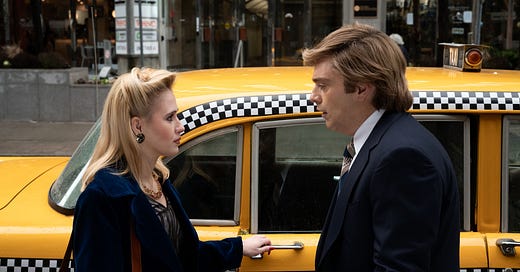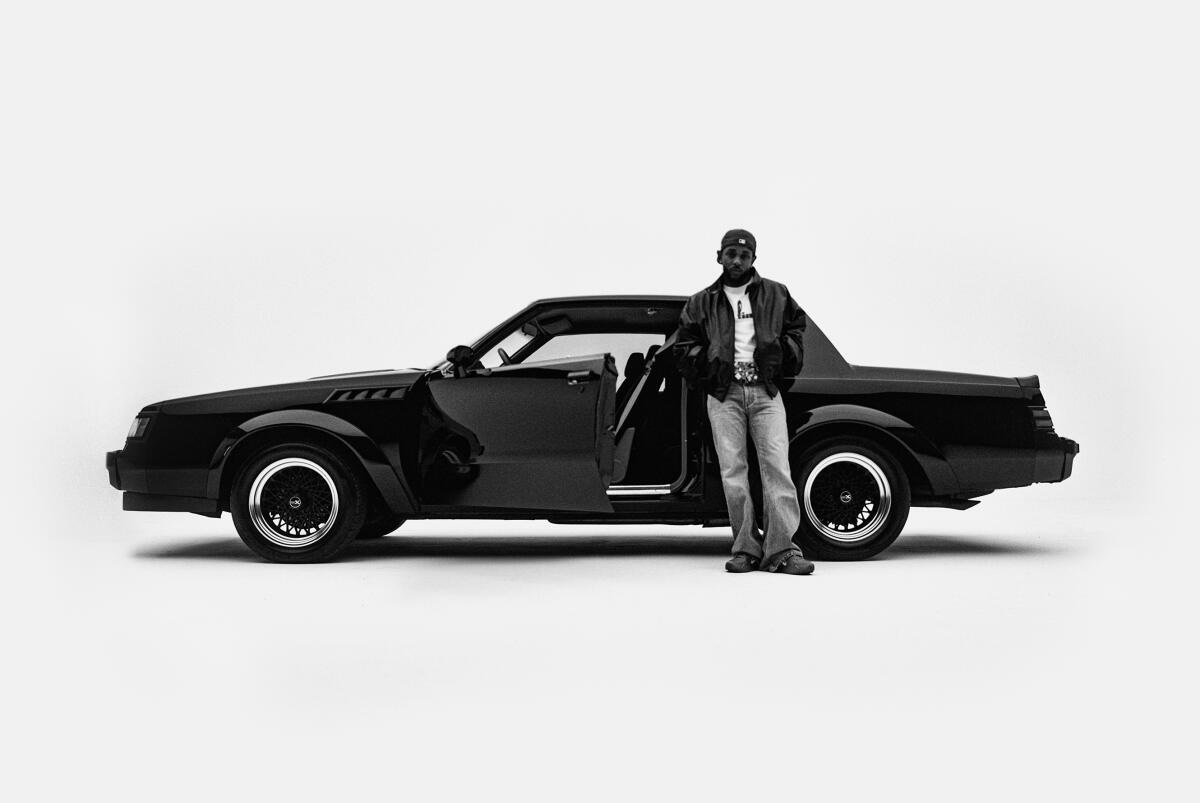“The purpose of a writer is to keep civilization from destroying itself,” said philosopher and novelist Albert Camus.
An absurdist with a distaste for outright nihilism, perhaps Camus delighted in the establishment of such a preposterous standard for the generations of writers to follow in his wake. Or maybe writing was the sole domain in which Camus’ preoccupation with the meaningless and the absurd washed away, a rare optimism blinding him to the notably existential threats facing his art of choice.
Alas, the responsibility remains. The fate of the universe rests upon lowly newsletters such as Cory’s Reads, and so even as I barely meet my own monthly deadlines, I take solace in the protection my words offer each and every one of you.
Then again, novelist E.L. Doctorow once offered a markedly different perspective on our line of work: “Writing is a socially acceptable form of schizophrenia.”
This one resonates with me a bit more. What the hell is this month’s newsletter about anyway? It may not be the first time you have opened an email from me and asked that question, and it certainly won’t be the last. And yet, you indulge me, and I thank you for it. The truth is that words — written or spoken or AI-generated — have never felt less vital.
I have read and listened to more words in the past several weeks than I would have thought possible, many of them very resonant and profound! And yet I have never been more convinced of civilization’s capacity to destroy itself.
I have never felt more hopeless.
I hesitate to write about him directly. He has been the subject of so much writing over the last decade, and has now guaranteed himself at least four more years of overexposure. I have my own thoughts on the obvious failures of the Democratic Party in the face of such evil, not to mention the even more obvious failures of the American political system writ large. I will forever lament the Democrats’ dismissal of Bernie Sanders and his progressive coalition in 2016 and then again in 2020, only to embarrass themselves in the nation’s most historically pivotal election by welcoming neoconservative hawks like Liz Cheney into Kamala Harris’ cluttered campaign, highlighted by such notable initiatives as “she's not the other guy” and “fracking is good, actually.”
I have watched the President-elect cause irrevocable damage to the psyches and dispositions of people I love, not to mention legitimate harm to marginalized communities with whom I can only empathize. I am tempted to wallow in the self-pity that comes with the understanding that my entire voting life has been defined by this miserable man, that my entire early adulthood has played out beneath his spray-tanned specter. I will exit my 20s with the knowledge that neither financial growth nor security were made possible by an administration too concerned with protecting the ultrawealthy and policing women’s bodies to equip America’s laborers with the tools or resources necessary to…I don’t know…purchase a home? Save for retirement? Afford healthcare?
One more writing quote, this one courtesy of Henry David Thoreau:
“How vain it is to sit down to write,” he says. “When you have not stood up to live.”
Thoreau’s quote is my favorite of the three. It taps into the core anxiety I have around my own relationship to writing, and by extension my professional life. I struggle to prioritize my writing on a regular basis, and I often justify my dillydallying as a kind of inspiration for my written work. Of course, when I am not writing, I am at work with my full-time job, a distraction I find fulfilling, but a distraction nonetheless. When I am not working, I am watching movies or playing video games or eating delicious meals with my friends. Thoreau may regard such leisure activities as “standing up to live,” yet I battle a strange sense of guilt across them all. They may be the foundation from which my creativity grows, but they can also feel like obfuscations of the greater vision I have for my life.
That tension between productivity and recreation surely is not unique to me, and I suspect the burden of simply living our lives has grown increasingly heavy for many of us as of late. As I write about numbness, hopelessness, anxiety, and fear, I am certain I speak of sensations with which you are also all too familiar. What I have found most striking in the aftermath of this year’s election is the relative lack of a response at all by those of us so supposedly outraged by the results. Whereas 2016 and 2020 were defined by spurts of revolutionary revulsion to the country’s downward spiral, 2024 seems to be defined by indifference and inaction. As business owners in Portland, Oregon — a hotbed for protest in 2020 — boarded their windows in preparation for any post-election fallout, they were likely even more shocked to find those wooden panels untouched in the three weeks since America made its disappointing decision. I am not advocating for toppled trashcans and shattered glass, but I do wonder where that insurgent anger has settled instead. MAGA’s real prize may not even be the presidency, but rather the crushed spirits of the American left.
An unfortunate extension of our shared defeat is the unsettling extent to which we have already attempted to normalize our new president across different areas of pop culture.
Just weeks after referring to the man as Hitler, Morning Joe hosts Joe Scarborough and Mika Brzezinski visited Tr*** in Mar-a-Lago for a casual meeting. The duo claimed the meeting was an attempt to “reopen” the lines of communication between them and the President-elect. Interviewing him is one thing, but the behind-closed-doors meeting more closely resembles moths swarming to light than meaningful reporting of any kind.
Actress Rachel Zegler had to issue a public apology for her post-election comments, in which she identified a “deep, deep sickness” in the United States and predicted “four years of hatred” before ending her Instagram story post with “Fuck Donald Trump.”
(Her words, not mine…)
The apology was likely mandated by cowardly Disney execs who could not fathom the idea that their new Snow White would have the agency to express political thought. The divisiveness of her comments just would not fly at the box office, and if she really wants that role in the next Marvel movie…she better fall in line.
Sebastian Stan made headlines last week at a screening of his latest film The Apprentice — in which he brilliantly renders a young and morally pliable Donald Trump — when he told an audience that he could not participate in Variety’s ‘Actors on Actors’ series after the outlet struggled to find a willing partner.
“They were too afraid to go and talk about this movie, so I couldn’t do it,” Stan said.
The 42-year-old star laid the blame at the feet of Hollywood’s publicists, who ultimately served as a barrier between the invited talent and the opportunity to connect with Stan on-camera. The Apprentice is a shockingly excellent film, painting a grim portrait of Trump’s early days as a corrupt New York real estate mogul. It is unclear whether the hesitance around discussing the film stems from a pushback against the film’s decidedly negative portrayal of Trump, or a general discomfort with speaking about him altogether.
Sycophancy and incuriosity are equally as troubling in a culture where that kind of anti-intellectualism continues to rise, and our old-fashioned brand of American politeness proves less and less effective against the existential threats of our times.
Alas, we continue to bury our heads deeper in the sand.
The Apprentice screenwriter Gabriel Sherman manages to conjure genuinely fresh insights into Trump’s shattered psyche, somehow avoiding the didactic or outright distracting discourse we have indulged for the last decade of American politics. I am not sure I am capable of such ingenuity here at Cory’s Reads, but writing is all I know how to do. As I observe a growing apathy in both myself and across large swaths of American culture, I can only promise you that I will do my best to keep writing. I cannot guarantee that these words will prevent civilization from destroying itself, nor that they will chip away at the sand above our heads. I cannot promise these ramblings will sound any less schizophrenic, nor that they will arrive in any more timely of a manner (I know…you were just beginning to forget about the election until this pesky newsletter showed up in your inbox.)
I will continue to wonder if writing is more indicative of revolution or stagnation, if the energy expended in crafting my 41 newsletters could have been better placed elsewhere, or if this hopelessness will ever go away. I wonder when I will write next, so often unmotivated until enough fascination or fury has built up inside me. I write about writing because I identify as a writer, and yet I write only when compelled by some force beyond my control. By situating my work within the context of this monthly newsletter, I am committing myself to the act of writing, even when passion and rage are not on my same schedule.
At least that is the idea.
Laziness and lethargy tend to delay an issue of Cory’s Reads more than inspiration, or the lack thereof, ever could. I worry that my dueling desires to both be a bona fide writer and to abdicate myself of any true responsibility as such are emblematic of the American predicament at large. I was struck by this same phenomenon just last week, when one of the great American writers/artists of our time, Kendrick Lamar, dropped his surprise album GNX.
A Pulitzer-winning rapper, K-Dot needs no introduction. 2024 has been a landmark year for the icon, headlined by his feud with inferior rapper Drake, not to mention his record-setting diss track “Not Like Us.” As a longtime fan of the Compton native, my feelings towards his banner year have been complicated. Kendrick’s back-and-forth with Drake was undeniably entertaining, but it often felt oddly superfluous for a rapper who had previously concerned himself with profound questions of racial identity and inequality, not to mention somewhat disingenuous for the frequent Dr. Dre collaborator.
“Not Like Us” maintained Kendrick’s complex lyricism, as do several tracks on GNX as well, but his preoccupations have shifted. On 2015’s To Pimp a Butterfly, Kendrick wondered aloud if he might be his generation’s MLK or Mandela. By 2022, he had reasonably shied away from such proclamations on the thoroughly vulnerable Mr. Morale & the Big Steppers. Insisting that “he is not your savior” on the aptly named “Savior,” Kendrick renounces the kind of messianic leadership he once thought was inevitable for an artist and icon of his stature. Mr. Morale was a sobering reminder that no individual artist or activist could save us from our societal woes, and it was chilling to watch a generational figure like Kendrick reckon with his own flaws and insecurities as he came to terms with that very same realization.
But Kendrick now finds himself with more capital — financial, social, and otherwise — than ever before. He is understandably feeling himself in the wake of Drake’s defeat, running victory laps with the people of Los Angeles, his hometown emerging as the latest focal point of K-Dot’s poetry and pride. GNX is more of the same, finding Kendrick at his most brutal and braggadocious. The ferocity of his feud with Drake remains across the album’s twelve tracks, but the bite is not quite as sharp. As Kendrick asserts himself as the undisputed greatest rapper alive — he is, and it’s not even close — he seems to have forgotten the shame and humility that made Mr. Morale and the albums that preceded it so personal and penetrating. He wears the mantle of his greatness with honor, yet sidesteps the obligations that come with it.
If Kendrick truly has reconciled his complex attitudes towards the artist’s ability to effect real change in our noisy world, and is content to operate as our culture’s most confident instigator, he has earned the right to do so. But if we are to add that kind of misguided moral superiority to the list of items miring us all in a state of inertia these days, I worry we have lost an ally in the fight to regain momentum.
At its best, Kendrick’s writing has truly kept civilization from destroying itself, and perhaps the playfulness of his recent output is more effective in that aim than any alternative assignment we may have for him, but words of all kinds have never felt less vital. There will be more of them, from myself and others, but it’s become exceedingly clear that the revolution will not be scribed.
Letterboxd Review of the Month
I suspect much of the hand-wringing (at least from American critics) over the exact quality of Steve McQueen's latest feature stems from the film's somewhat tired exploration of racial identity and civil unrest circa WWII. It's worth acknowledging, however, that contemporary British film hasn't had quite the same reckoning with its racist past and present (nor do recent events suggest America's own cultural attitude towards race is totally beyond these rather typical depictions of prejudice), and McQueen deserves some credit for taking on that responsibility, first with his brilliant Small Axe series and then again here with Blitz, which despite its fairly boilerplate storytelling, stands out as one of the most moving and well-crafted films of the year. McQueen directs his career's most tender film with a soothing musicality, leveraging an innovative Hans Zimmer score that often imitates the film's visceral (and loud, in a theater at least) sound design across the film's most harrowing and most idyllic of sequences. There is a very classical story at the movie's core (emotionally rendered by the always great Saorsie Ronan as well as newcomer Elliott Heffernan), but Blitz is most compelling when McQueen expands upon the fringes of his period setting, particularly via some of the most mind-blowing dance/party sequences put to film, evoking that sweet sweet Lovers Rock energy with dynamic camera movement and consistently unique coverage scene-to-scene, before starkly contrasting it with the horrors of war. These incongruities are the backbone of Blitz -- it's a joyous film about death and destruction, a historical drama concerned with making up for lost time, and a WWII epic at the most intimate of scales. By the time McQueen zooms out to reveal a London in rubble, the spectacle is as jarring as it is grand. Blitz therefore functions as not only a textured tribute to a bygone era, but also a gentle referendum on the anonymity with which we have always treated this indelible period in history.
Follow me on Letterboxd at @creid61, and keep up with the rest of my work on Instagram at @coryreid6125.
I am on BlueSky now as well! Follow me at @coryreid.bsky.social.
You can also support my work over at Buy Me a Coffee.







